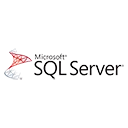SQL Server Integration Services (SSIS) is a powerful tool provided by Microsoft for data integration, transformation, and workflow automation. In this introduction, we'll explore the core concepts of SSIS and how it can be used to manage, manipulate, and move data within your SQL Server environment.
What Is SSIS?
SQL Server Integration Services (SSIS) is a comprehensive ETL (Extract, Transform, Load) platform that enables you to:
- Extract: Collect data from various sources, including databases, flat files, and web services.
- Transform: Modify and cleanse data through data transformations and conditional logic.
- Load: Load data into destination systems, such as databases or data warehouses.
- Automate: Create data workflows, automate data-related tasks, and schedule data integration jobs.
Creating an SSIS Package
In SSIS, you work with packages, which are the building blocks for data integration. A package typically includes control flow tasks and data flow tasks. Here's a simplified example of an SSIS package:
-- Sample SSIS package to import data from a CSV file to a SQL Server table
1. Read data from CSV file
2. Data transformation (e.g., data type conversion)
3. Load data into a SQL Server table
Within the package, you can design data flows to define the source, transformations, and destination for your data.
Deployment and Execution
Once you've created an SSIS package, it needs to be deployed to an SSIS server or executed through SQL Server Data Tools. Deployment options include SQL Server, File System, and more.
Benefits of SSIS
SSIS offers several advantages, including:
- Efficient data migration and consolidation.
- Data quality improvement through transformations and validation.
- Workflow automation for recurring tasks.
- Integration with various data sources and destinations.
What's Next?
You've learned the basics of SQL Server Integration Services (SSIS), a powerful tool for data integration and ETL. To become proficient, you can explore advanced topics like SSIS expressions, scripting, package configurations, and working with different data sources and destinations.
Mastering SSIS can significantly streamline your data integration processes and enhance data quality and reliability.

